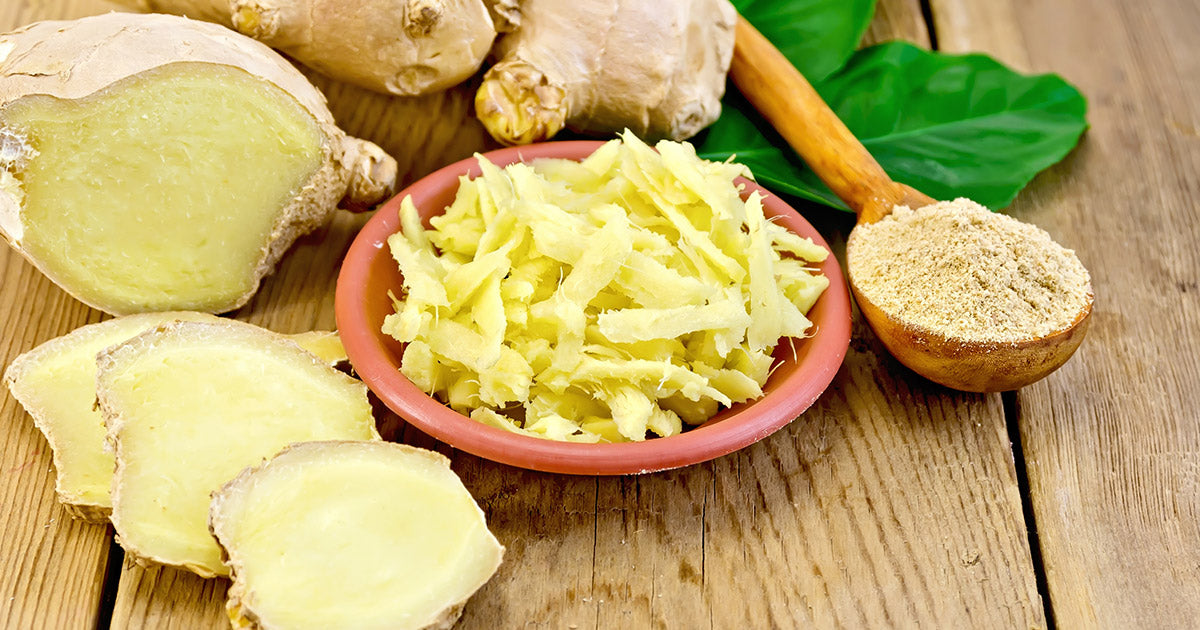
From Spice Rack to Medicine Cabinet: The Power of Ginger
Ginger has been used for thousands of years in traditional Asian medicine to support digestion, boost vitality, and treat common ailments like nausea and colds. Its power comes from gingerols—bioactive compounds with strong anti-inflammatory and antioxidant properties that benefit both gut and brain health. Today, modern science is confirming what ancient cultures long knew: ginger is a natural, effective way to support overall wellness.
Ginger, a staple in kitchens and medicine cabinets across Asia, has a legacy that spans centuries. From its roots in ancient traditions to its place in modern wellness, ginger continues to be a powerhouse of health benefits.

Historical Roots: Ginger in Asian Culture
Originating in the lush tropical forests of Southeast Asia, ginger has been a vital part of Asian cuisine and medicine for thousands of years. In China and India, this pungent root was revered not only for its flavor but also for its medicinal properties. Used in everything from teas to elaborate dishes, ginger was believed to warm the body, improve digestion, and enhance overall vitality.
In traditional Chinese medicine, ginger was often prescribed to treat ailments like nausea, colds, and digestive issues. Similarly, in Ayurveda, the ancient Indian system of medicine, ginger was used to balance the body's doshas and promote digestive health. Its warming properties made it a popular remedy for cold and flu symptoms, as well as a key ingredient in many herbal formulations.

The Science of Ginger: Gingerols and Their Importance
The secret behind ginger's potent effects lies in its active compounds, particularly gingerols. These bioactive components are responsible for ginger's distinctive aroma and spicy flavor. More importantly, gingerols have been shown to possess powerful anti-inflammatory and antioxidant properties, making ginger a valuable ally in promoting health.

Gut Health and Inflammation
Ginger has long been celebrated for its ability to soothe the stomach and improve digestion. Modern research confirms that ginger can enhance gut health by supporting the balance of gut microbiota and reducing inflammation. Its anti-inflammatory properties help alleviate gastrointestinal discomfort, making it a popular choice for those suffering from indigestion or nausea.

Brain Health and Beyond
Beyond the gut, ginger's benefits extend to the brain. The anti-inflammatory and antioxidant effects of gingerols may protect brain cells from oxidative stress, potentially supporting cognitive function and reducing the risk of neurodegenerative diseases. Some studies suggest that ginger may even play a role in enhancing memory and attention, making it a promising area of research for brain health.

Embracing Ginger's Legacy
From ancient remedies to modern science, ginger continues to be a versatile and powerful ingredient. Whether you're sipping on ginger tea to soothe a sore throat or incorporating it into your meals for its health benefits, ginger offers a natural way to support your well-being. As we continue to explore its potential, ginger remains a testament to the enduring wisdom of traditional medicine and the exciting possibilities of modern research.


0 comments